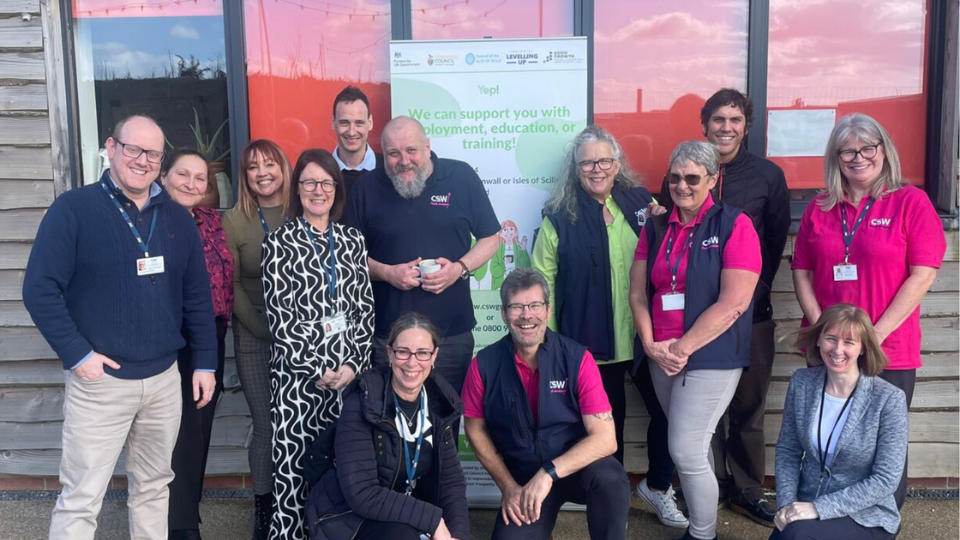EDT has long been a proponent of appropriate and accessible apprenticeships – evidence shows that a lack of apprenticeships and a mismatched skillsets are leading causes in the nearly half a million unemployed young people in the UK. But what is an apprenticeship and why do we promote them? Fundamentally, an apprenticeship is a paid job which combines practical training with study. An apprentice is fully employed from day one, working alongside experienced staff to gain job-specific skills, earn a wage and receive holiday pay. They are also given time for pre-funded study related to their role, the equivalent of one day a week. This allows people to earn a qualification without the burden of a student loan or tuition fees.
Many people have misconceptions about apprenticeships
NAW 2022 is an excellent opportunity to address some of the common misconceptions about apprenticeships. Over the course of the week, EdDevTrust will be revealing interesting statistics, sharing customer testimonials and combatting common misconceptions about apprenticeships. For example, one widespread belief is that apprenticeships are only for school leavers and young people – yet statistics show that more than 50% of people who started an apprenticeship in England this year were aged 25 and over. As well, while the starting age for an apprenticeship in the UK is 16 years, there is no upper age limit. Whether you are just starting out, upskilling, or looking for a major career change, there's an apprenticeship for everyone.
The breadth of opportunities available is also much wider than most people imagine. In 2020/21 there were more than 78,000 apprenticeships in science, technology, engineering, and maths (STEM) in England, and the most popular sector area for apprenticeships in 2020/21 was Health, Public Services and Care, making up nearly one third (30.3%) of apprenticeships starters. Finally, there are five levels of apprenticeships available (Levels 2 to 7) which all have a corresponding, recognised educational level. While Intermediate Level 2 is equivalent to 5 GCSE passes at grade A* to C , Levels 6 and 7 are equivalent to a bachelor’s or master’s degree.
How Education Development Trust is transforming understanding
We support the apprenticeship pathway via our work with the National Careers Service and apprenticeships remain a core element of the careers advice and guidance services that EdDevTrust offers directly to schools. We are supporting the national campaign #AskAnEmployer and #AskAnApprentice events by being available to answer questions and provide guidance and our National Careers Service advisers are due to hold a number of virtual workshops on apprenticeships for prospective applicants in the coming weeks.
Since August 2019, we have delivered the Apprenticeship Support and Knowledge for Schools (ASK) programme to promote apprenticeships to Key Stages 3 to 5. The programme reaches over 200,000 students nationwide annually and is designed to give schools, colleges and other educational establishments across England fully funded support to transform how students think about apprenticeships. ASK has reached 392 schools and colleges and engaged with 59,859 students in the UK. 95% of young people rated the improved knowledge on apprenticeships due to the programme as ‘Excellent’ or ‘Good’.
What our apprentices are saying
EdDevTrust not only promotes the value of apprenticeships externally, but actively support access to this job route among our own staff. We have several employees who are studying an apprenticeship while working with us – we asked them to share how they felt about their experience.
Carla Castillo Roure, a Level 6 Digital Marketing Apprentice at Education Development Trust told us, 'I am thoroughly enjoying my experience undertaking an apprenticeship and I couldn’t be more grateful to Education Development Trust for allowing me to study and work at the same time.' A widely mentioned benefit of doing an apprenticeship is the way it combines learning and working and reduces the financial burden of taking time out to study. Donna Cornell, a Level 6 Improvement Leader Apprentice said, ‘An apprenticeship gives me the opportunity to hone and further develop my skills within continuous improvements without the needs for me to take a career break to undertake separate learning.’
Carla and Donna are not alone – more than 84% of young apprentices across the UK would rate their apprenticeship as ‘Excellent’ or ‘Good’.
Join the conversation with us this week under the hashtag #NAW2022 and #BuildTheFuture and don’t forget to tag us @EducationDevelopmentTrust.






